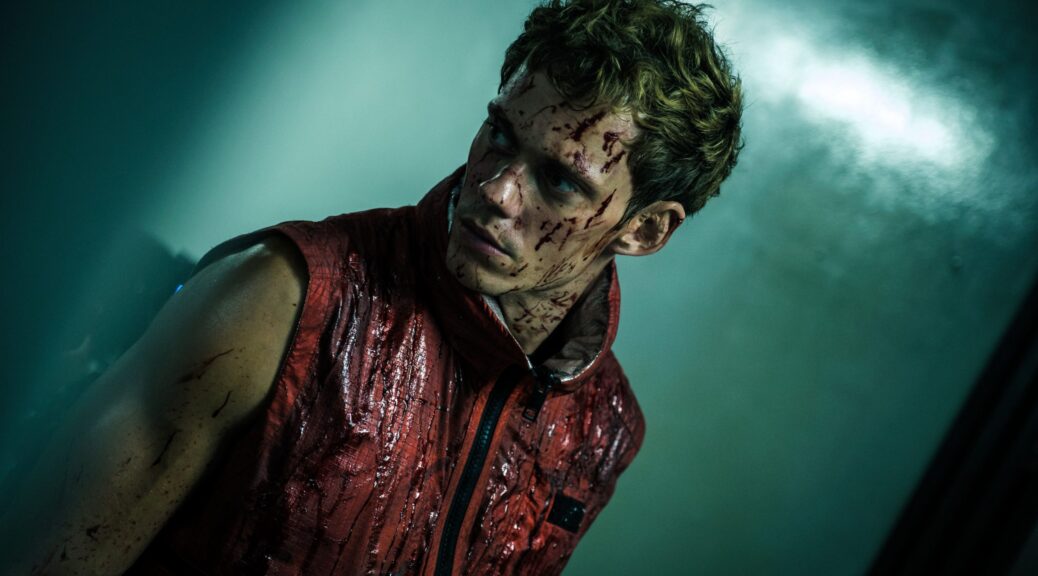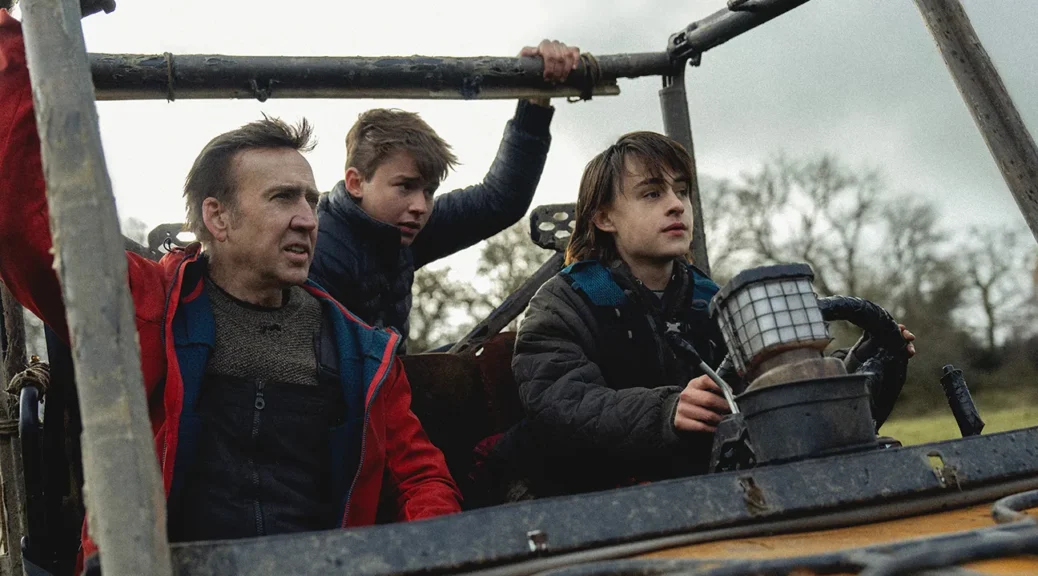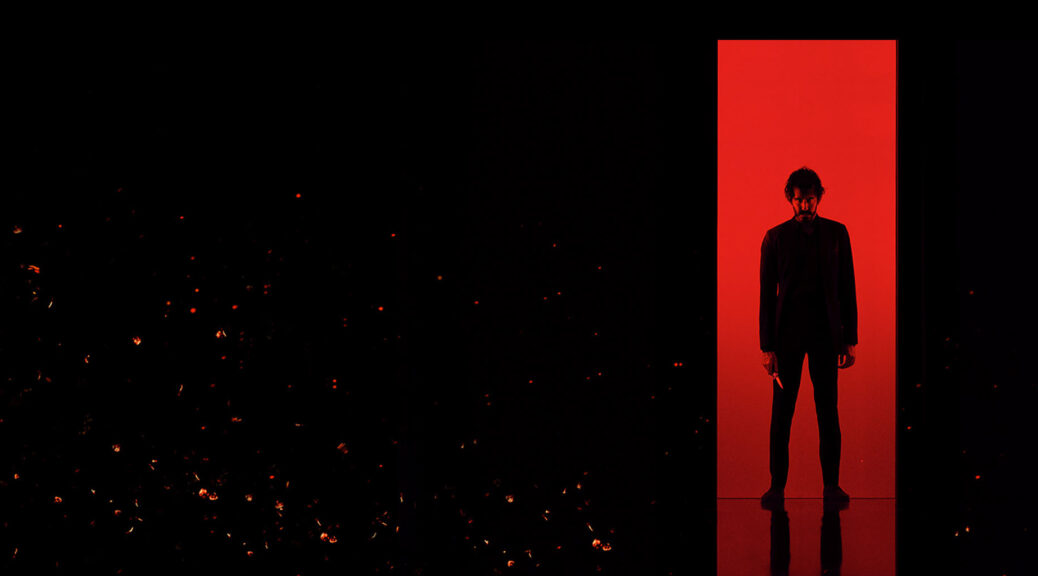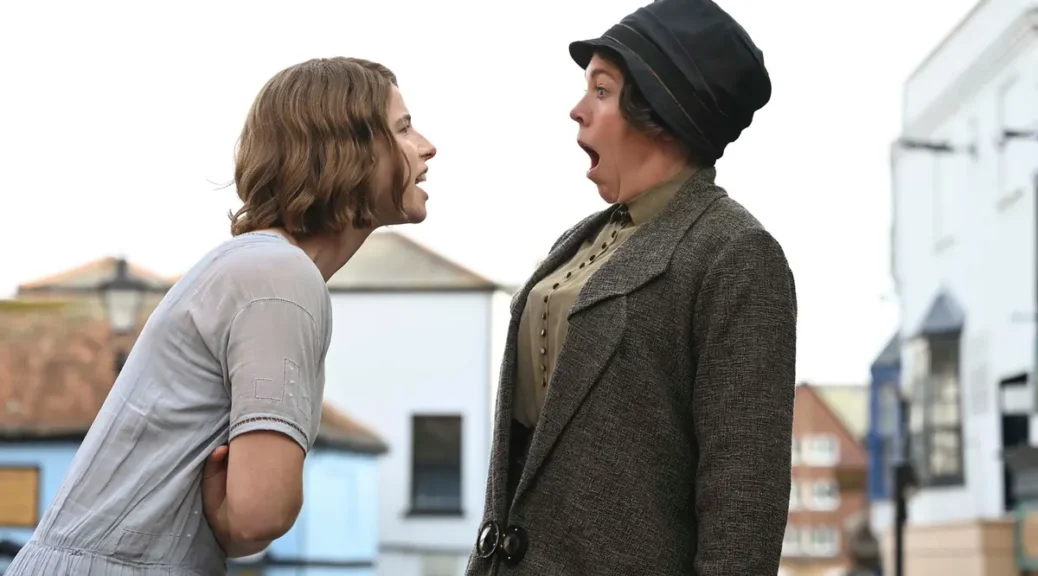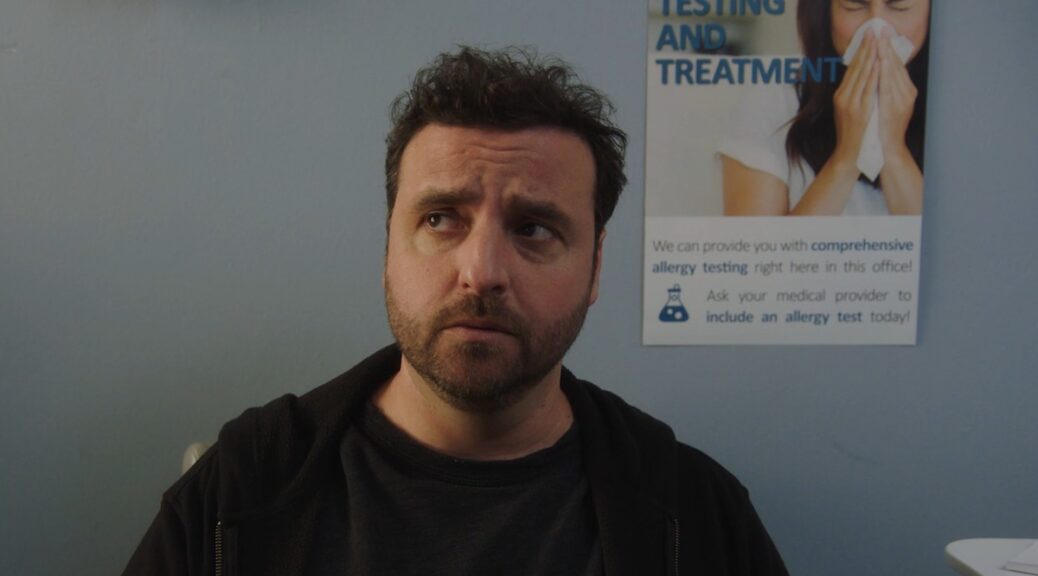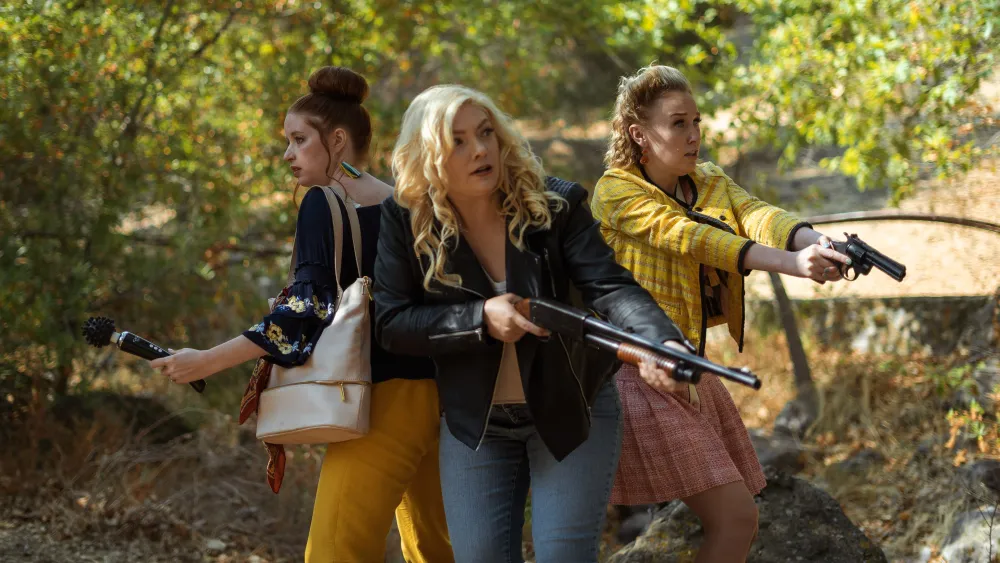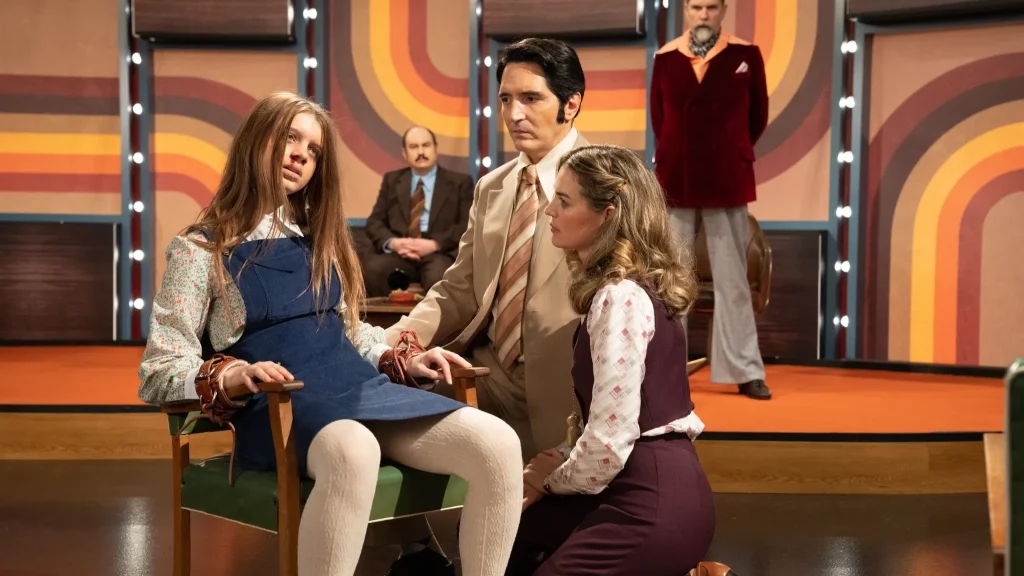Boy Kills World
by George Wolf
Boy Kills World feels like a film the gamers are going to love.
For the rest of us, it offers a hyper stylized, uber-violent riff on The Hunger Games by way of Kill Bill while it harbors Deadpool aspirations and a coy surprise waiting in act three. But while the style is never in doubt, real substance is lacking.
Bill Skarsgård supplies plenty of physical charisma as “Boy,” whose family was murdered years earlier during a lethal event known as “The Culling.” Once a year in this post apocalyptic landscape, enemies of ruling matriarch Hilda Van Der Koy (Famke Janssen) are rounded up and executed for sport and entertainment. Though Boy survived the assault, he was left deaf and mute, and has spent several years training with a mysterious shaman (Yayan Ruhian) until the time was right to take his revenge.
Against the shaman’s advice, Boy feels the time is now. And though he’s evolved into a singular killing machine, Boy is not alone. He has an inner voice adopted from a favorite video game (veteran voice actor H. Jon Benjamin), and a fever dream imagination that often bickers with the ghost of his rebellious little sister (Quinn Copeland).
On the eve of another Culling, Boy’s martial arts rampage of blood begins, and one of his early weapons of choice is a cheese grater.
Go on.
In his debut feature, director and co-writer Moritz Mohr skillfully captures the frenzied, level-up mayhem of video games. Cinematographer Peter Matjasko, composer Ludvig Forssell and editor Lucian Barnard help complete the gaming pastiche, while the screenplay keeps Benjamin supplied with commentary that’s consistently fueled by meta-sarcasm that never hits the master level of self-awareness.
As Boy starts up the ladder of the Van Der Koy family (Michelle Dockery, Brett Gelman, Sharlto Copley) and their Head of Security (Jessica Rothe), he falls in with a group known as the Resistance before the narrative takes its unexpected pivot.
Boy’s states of delirium have already opened the door for an unreliable narrator, so Mohr commits considerable effort (and exposition) in making sure we understand the twist.
But what we need even more is a reason to care.
Much like Hardcore Henry almost ten years ago, the film’s gaming mindset results in action that is visually exciting, but as emotionally empty as a “Play again?” reset. There’s never any motivation to get invested in the stakes, or in the attitude that often reeks of desperation hipness.
So while Boy Kills World‘s target audience may be blown away, those outside the center will find some tedium inside this finely orchestrated mayhem.
There’s no doubt you’ll find a few new uses for your cheese grater.
